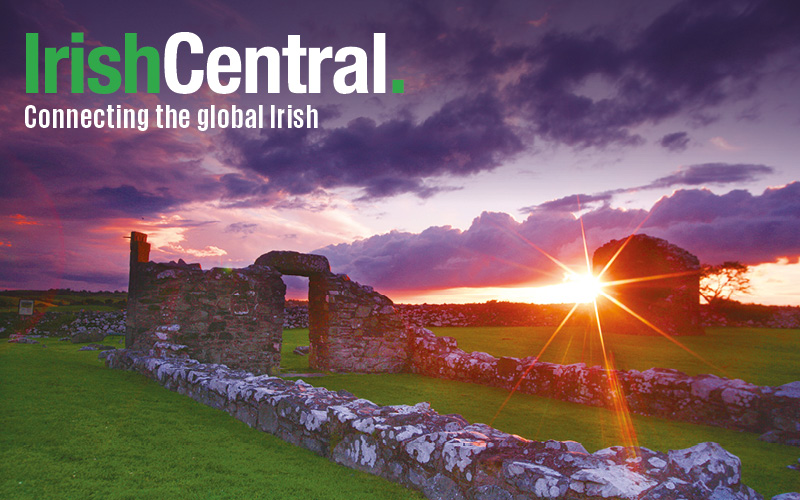Doreen McPaul, the Attorney General for the Navajo Nation, has shared a heartfelt message of gratitude for the Irish outpouring of support as the Navajo Nation navigates the coronavirus pandemic.
Read More: “Ireland remembers” - Irish donations help raise more than $2.6mil for Native Americans
On Monday, May 11, the Navajo Nation had reported 3,204 confirmed cases of coronavirus and 102 deaths. Those figures indicate that the Navajo Nation, the most populous of the Native American reservations in the US, now has more COVID-19 cases per capita than any other state.
As the Navajo Nation struggles to cope with the pandemic, there has been a staggering outpouring of support from Irish people and people of Irish descent sending donations to the Native American reservation. The donations are inspired by the donation that the Choctaw Nation sent to Ireland in 1847 at the height of The Great Famine.
On May 10, Navajo Nation Attorney General Doreen McPaul, who serves as the Donation Branch Chief of the Navajo Nation’s Health Command Center, filmed a special message of thanks to the Irish for their efforts in 'paying back' the 172-year-old favor.
In her video, McPaul says she is “especially proud of this response because of my own Irish heritage.” Both of her grandfathers are Irish, and her father, who was raised on the Navajo reservation, is a dual citizen of Ireland and the US.
“Our Irish family roots are in both Co Armagh and Co Laois,” McPaul says, “and the Hobsons in Ireland of Quaker stock were deeply committed to Irish culture through the GAA and the Gaelic League.”
McPaul’s sister, who studied in Ireland for a period, even married an Irish man, Co Clare native Jason Ryan. The couple's four children, Liam, Aidan, Padraig, and Saoirse, are enrolled members of the Navajo Nation.
“We are very proud of dual heritage,” McPaul says.
Noting that Ireland the Navajo Nation are roughly the same size of 27,000 square miles, McPaul adds: “There are many similarities between our cultures, including our love of the land, our language, our songs, our dance, our sports, our people, and our history. Many parts of Ireland are actually very similar to the Navajo reservation with the vast farmlands and the herds of sheep and cattle. Just as the Irish use sheep wool to make textiles, so do the Navajo.
“We also have a shared history of oppression. During the Irish Famine, when the Choctaw Nation sent money to the Irish despite their own struggle, that gesture has become a symbol of paying it forward, and the Irish are paying it forward to the Navajo Nation.
“I just want to say thank you for the Irish support and for the donations to the Nation. I also want to thank the Irish Cultural Center of Arizona, and the US - Irish Consulate, for their continued support and for helping spread the word about the Navajo Nation’s COVID-19 relief effort at Navajo.fund.
“My hope is that the Navajo Nation will be able to pay it forward in honor of Ireland someday.”
Read More: Paying back Great Hunger kindness, Irish support Native Americans struck by COVID-19
The disadvantages of the Navajo Nation during a pandemic
Speaking with RTE Radio’s Morning Ireland program on May 12, McPaul discussed the disadvantages that the Navajo Nation, which spans three states in the US, is facing.
“Because we are remote, and we have issues with infrastructure and water, and multiple generational families living in the same homes, we have people who have high prevalence of disease, and diabetes, and cancer, and things that are not good for the virus,” McPaul said.
“There are many households that lack water, electricity. With the current pandemic and people having to stay home to work from home, to do school from home, to do telemedicine from home, we don’t have the broadband capacity for people to maintain their normal lives from home if they don’t have electricity and power or water to wash their hands for 20 seconds at a time.”
McPaul also highlighted the challenge of social distancing in the Navajo Nation: “It’s not really part of our culture, we are very social beings and communal beings. We take care of not just our families in our household, but our extended families in our communities, and the Nation at large.
“Separating somebody if you live in small quarters, it just isn’t feasible. And not having access to the necessary cleaning supplies to keep a home disinfected is a challenge for some of our communities. And then just not having the access to water to keep your hands clean is problematic as well.”
McPaul thanked supporters for donating to the Navajo Relief Fund, which had raised nearly $320k as of Tuesday evening, with many donations coming from Irish people or people of Irish descent. (A separate GoFundMe to support Navajo and Hopi families, which has also witnessed a massive amount of donations from Irish people, has raised more than $3.5 million as of Tuesday evening.)
“It’s beyond amazing, the outpouring of support has been heartwarming,” McPaul said. “It almost brings me to tears just to think about it.”
Read More: Choctaw Native American leads Tipperary famine walk, compares to “Trail of Tears”
You can learn more about how to help the Navajo Nation throughout the coronavirus pandemic here and here.




Comments